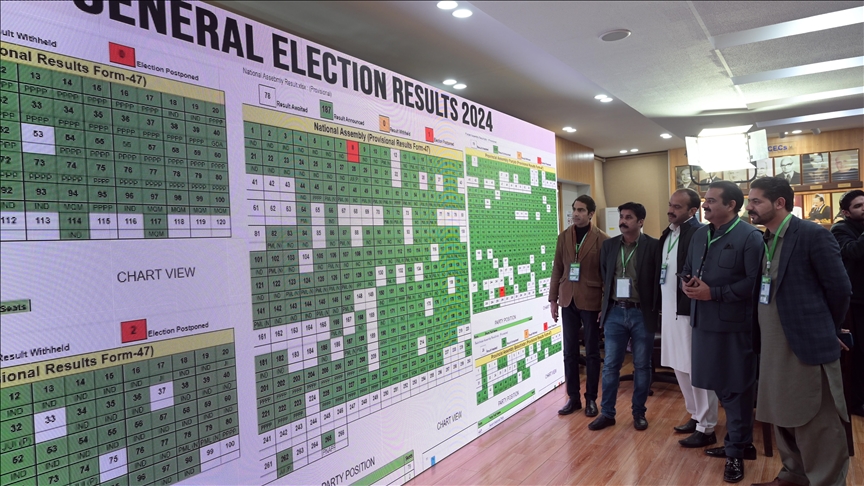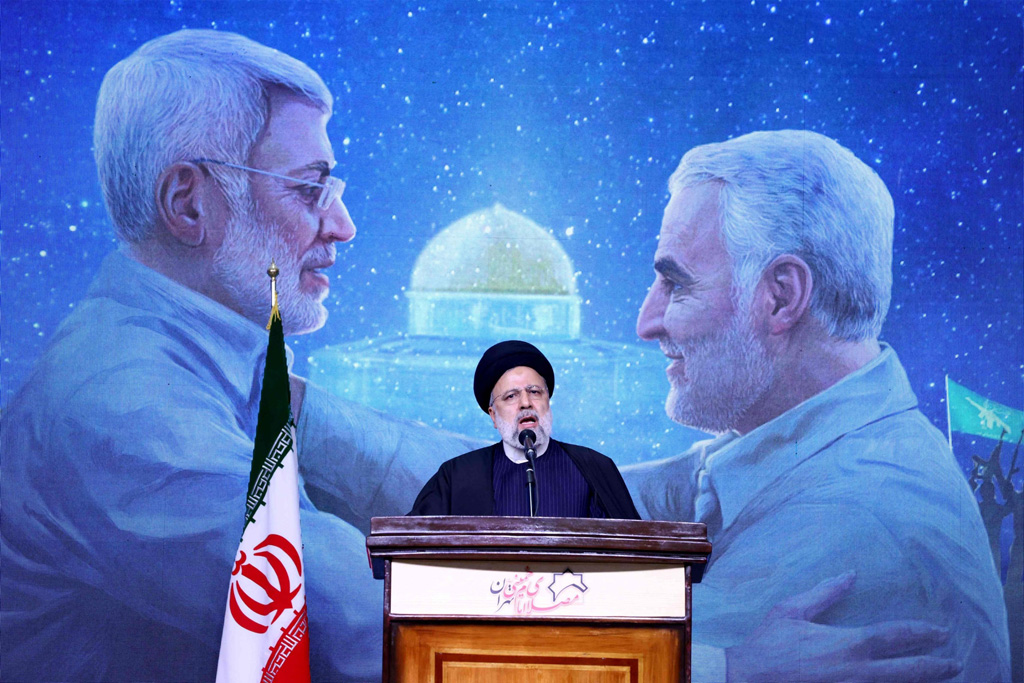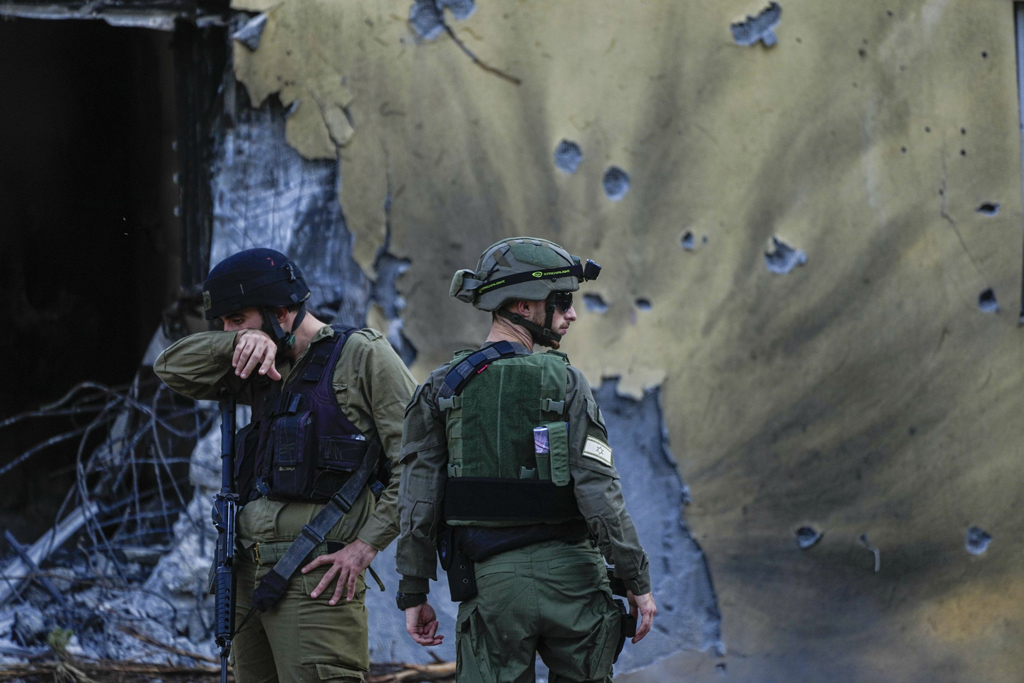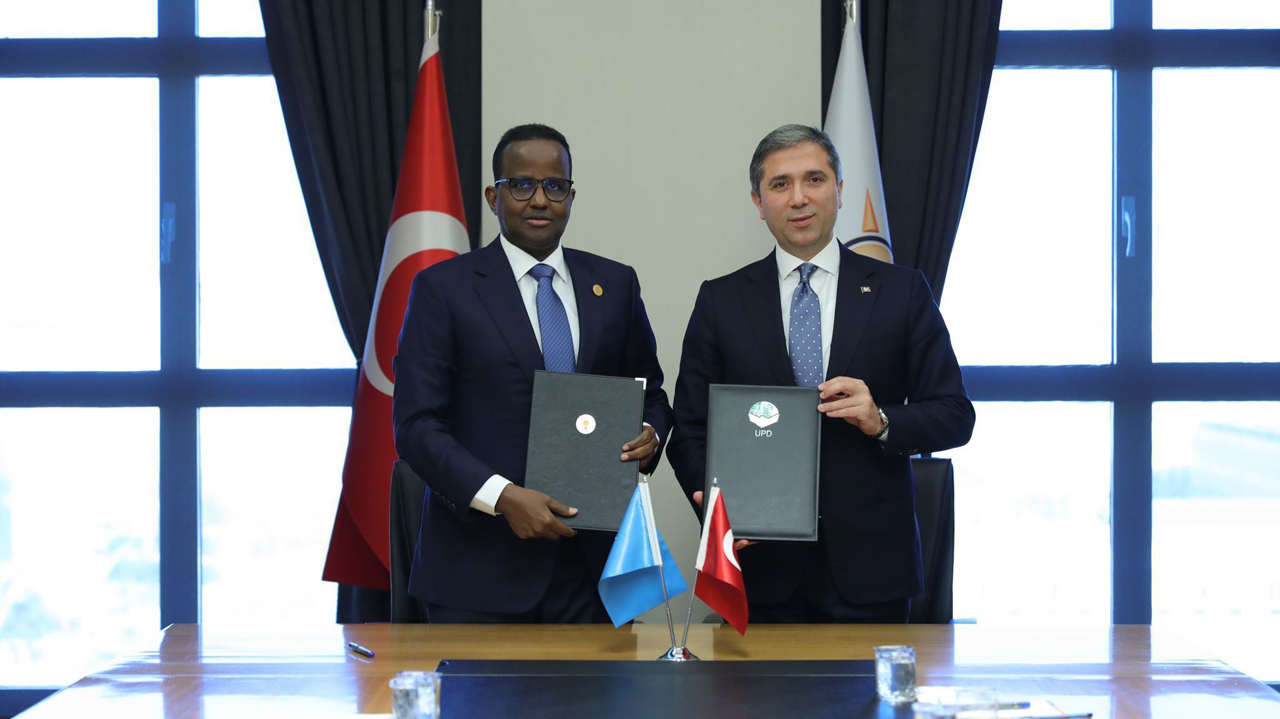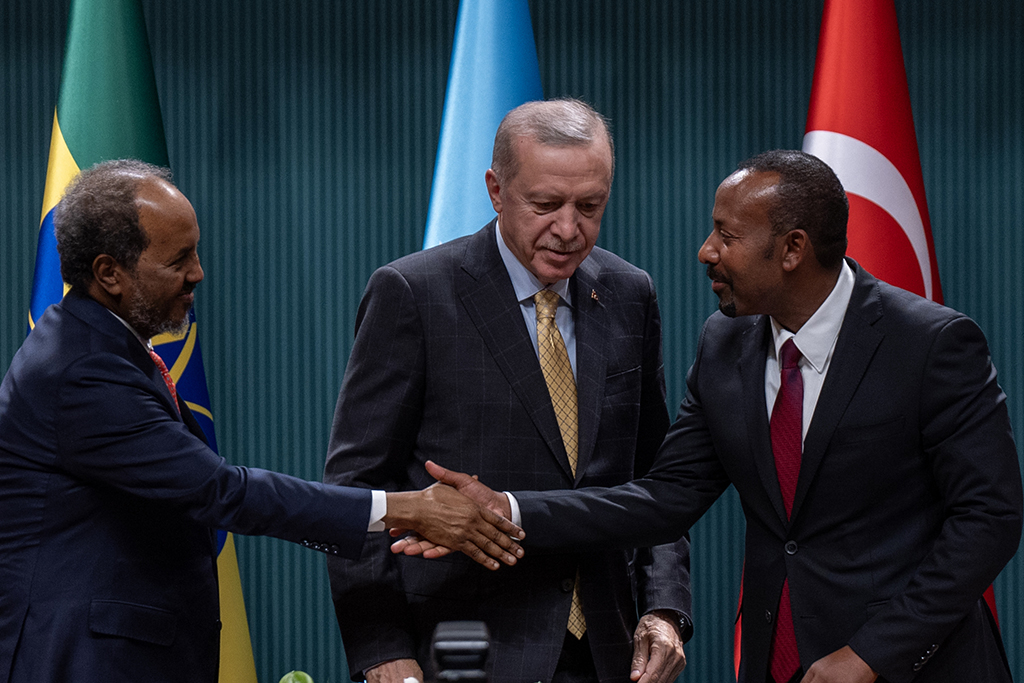Pakistan held its highly anticipated 12th general elections on Feb. 8, 2024. The polls took place amid a highly schismatic atmosphere, political fluidity, intense economic turbulence, and pressing security concerns. Despite some extreme political repressions and the absence of a level playing field, Pakistan Tehreek-e-Insaf (PTI), led by jailed former Prime Minister Imran Khan stole the show by claiming 93 seats out of 265 contestable seats. It left behind seasoned, traditional political parties like Pakistan Muslim League-Nawaz (PML-N) with 75, Pakistan People's Party (PPP) with 54 and Muttahida Qaumi Movement (P) with just 17 seats in the National Assembly (NA). A simple majority in parliament necessitates a mandate of 169 seats, including 70 reserve seats, as per the strength of each party in the NA.
Although pre- and post-poll electoral misconducts threaten to reduce Pakistan’s 2024 election to a selection saga – with a gripping composite patchwork of competing interests, clandestine maneuvers, and the perennial battle for political supremacy – a surprising turnaround of Pakistani voters reprimanded anti-democratic power centers. It canceled the culture of political opponents and the ongoing economic and political malaise post-Imran Khan's ouster from the premiership. It has also chastized the 16-month misadventure of the Pakistan Democratic Movement (PDM), the caretaker government’s inaction, the May 9 incitements and soaring inflation.
As per the earlier results on the night of Feb. 8, independents backed by PTI seemed to score an outlandish simple majority, but the kingmakers selectively manipulated the public mandate by targeting the particular constituencies to halt simple majority while winning enough to facilitate plausible deniability about rigging. Following the election, chaotic rigging, opaque actions by Returning Officers (ROs), tampering with ballots, and the disregard of Election Commission of Pakistan (ECP) regulations, including denying polling agents and contesting candidates the right to observe the vote count, have led to delayed result announcements. The deceptive tabulation of Form 47, in stark contradiction to Form 45, as verified by the independent Free and Fair Election Network (FAFEN) has consequently plunged Pakistan nation into a realm of uncertainties.
As a consequence, the Election Commission of Pakistan (ECP) issued a mandate with regional variations, paving the way for a hybrid model coalition comprised of six political parties: PML-N, PPP, MQM-P, PML-Q, IPP (Istehkam-e-Pakistan Party), and BAP (Balochistan Awami Party). Notably, this sidelined the PTI, which opted not to pursue the 'Talk it Out' alternative in protest against what it deemed a stolen mandate. With no single political party securing an absolute majority, this hybrid coalition government assumes the role of a minority government, driven by a survivalist instinct to appease a diverse array of political parties and the military establishment, ensuring the coalition's sustained existence.
In the face of a tanking economy and various security challenges, the conglomerate of desperate political entities is shepherding again to appear on the political horizon. This disenfranchising the popular mandate of no more dynastic politics will challenge the legitimacy and credibility of the PDM 2.0. The matter in question: Will the PTI’s claim of stolen landslide mandate be judicially endorsed? Quite frankly, it doesn’t seem so. Out of the population of 241 million, nearly 52% did not turn up to vote, and those 48% who voted are apprehensive about the ballot impact. Such a credibility crisis will further dent Pakistan’s democratic aspirations, the power of the vote, and the justice system.
Nearly 45% of the total electorate, or 130 million, falls in age 18-35, illustrating their aspirations and faith in the democratic process. One such upbeat consequence of this election is the tech-savvy youth of Pakistan who fought back relentlessly with the power of social media and AI against all odds of a political clampdown. Unlike past elections, the youth mobilized voters through door-to-door campaigns and conducted online campaigns, conventions, and electoral awareness programs. They provided all information about the constituency, candidates, and symbols amid the confusion that the PTI had to contest with a cricket bat as its electoral symbol and the suspension of mobile service on election day. Unprecedented compared to past elections, allegations of rigging and political maneuvering of invisible power were not merely rhetoric but well documented, with widespread video evidence available on all social media platforms. One such instance, Project 45, is garnering local and international media attention. In a departure from previous patterns, the public exercised their voting rights on Feb. 8 and sought to safeguard their legitimate mandate by holding night duties outside the Returning Officers' (RO) offices.
In the aftermath of the 2024 election, one notable positive outcome emerged as journalists in the digital media resisted undue pressure, providing uncensored and astute analyses of the prevailing electoral issues. This marked a departure from the ad nauseam of a PML-N clean sweep and the obliteration of PTI from Pakistan's political arena, offering a more accurate and nuanced perspective.
The bigger question dominating Pakistan’s current political discourse is whether PML-N’s runner-up status was earned or selectively manipulated by the establishment. The answer lies in the graceful response of contesting parties, to name a few Jamaat-e-Islami (JI), Pakhtunkhwa Milli Awami Party, Awami National Party (ANP), and independent candidates like Jibran Nasir, Mustafa Nawaz Khokhar and Ammar Jan gracefully accepting their defeat and testifying the PTI claimed results based on Form 45.
Engineer Hafiz Naeem ur Rehman's gesture of vacating the seat unfairly handed to him by disrespecting the public mandate is one example of the principled moral values of a true democrat. Similarly, the Grand Democratic Alliance in Sindh has returned its two seats to protest the alleged rigging of the public mandate. Contrasting to a previous joint venture with military establishment Jamiat Ulema-e-Islam (JUIF) has strictly denied being part of any hybrid coalition as a protest to rigged elections. To sum up, 16 political parties from all across Pakistan are protesting today against election rigging and stolen public mandate.
Amid the highly acclimatized domestic political milieu, the international response to Pakistan’s controversial yet crucial elections is not free from apprehensions. The United States, the United Kingdom, Australia, the United Nations, and the European Union have called for a free and fair investigation into claims of election interference. With the legitimacy of the electoral process in question, Foreign powers will not be quick to recognize the coalition government while affirming Pakistan’s focus on fixing internal drifts and security challenges rather than playing a robust role in prevailing strategic competition in the region.
Looking ahead, the proposed healing and reconciliation advocated by Chief of Army Staff (COAS) Syed Asim Munir can commence with the redemption of the Election Commission of Pakistan. This involves issuing consolidated results after amicably addressing the concerns of aggrieved candidates. The recent election results have initiated a profound reflection on the future governance of Pakistan. The electorate has fulfilled its duty, and now it falls upon the leadership to steadfastly confront the challenges of a functional democracy, either in the public interest or solely for their gain.
Observing how the coalition navigates to secure the International Monetary Fund (IMF) deal and averts the risk of default will be a point of interest. Meanwhile, the political climate remains volatile due to widespread protests stemming from the contentious elections. The path ahead for the PML-N coalition is expected to become clearer during the National Assembly session on Feb. 29. Conversely, the present circumstances indicate that the PTI is adopting a stance of being the most challenging, robust, and constructive opposition in the assemblies until their mandate is reinstated.
Pakistan's enduring economic and security challenges have no quick solutions, regardless of the ruling party, unless the fundamental root causes of these issues are effectively addressed. Amid this questionable electoral process, the political repercussions, ongoing disputes, and maneuvering can potentially be rectified by giving due respect to the mandate of the aggrieved people in all four provinces, adhering to Pakistan's renowned political mantra of "Vote ko izzat do" (Respect the vote).
